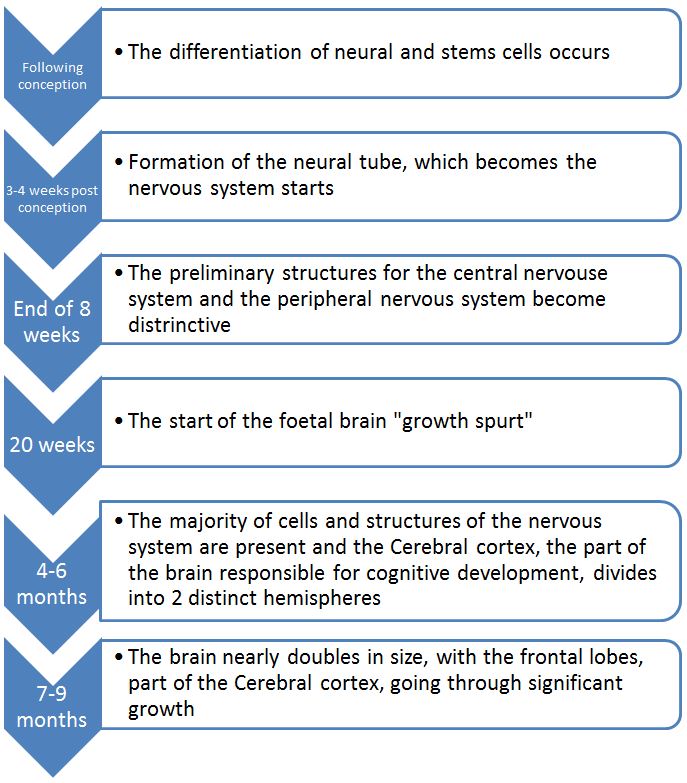Why is DHA important during development?
Although not fully understood, evidence shows that healthy children and adolescents do not have the same deficiency in DHA as those that developed learning difficulties.1 To better understand how this may be the case, let’s look at how the brain develops.
Brain development 2
 DHA and brain development in first 1000 days of life
DHA and brain development in first 1000 days of life
Conception through to 24 months of age are a critical period for nutrition and brain development.2 Development is dependent on specific nutrients at specific times, which makes nutrition the most influential non-genetic factor of brain development.2
Among these nutrients, Omega-3s, especially DHA, play a crucial role in brain and neural tissue development. However, the DHA requirement for a foetus is not met through most Western diets. It’s important to ensure a diet rich in DHA (i.e. high in fish!) especially through the last trimester of pregnancy.
Fast facts about DHA and brain development
-
DHA is concentrated in the central nervous system where it is the primary fatty acid in the brain.2
-
DHA is at its highest in the system during the last trimester of pregnancy (during the time of foetal brain growth spurt).2
-
Women that did consume enough fish (>2 to 3 servings of fish per week) during pregnancy were linked to having children with higher cognitive scores.2,3
If you don’t think you have enough DHA in your diet during your pregnancy, consider adding an omega-3 fish oil supplement.
References
- McNamara et al. World J Psychiatr 2015 March 22; 5(1): 15-34.
- Gould JF, et al. BMJ Open 2018;8:e020043. doi:10.1136/bmjopen-2017-020043
- USA Food and Drug Administration. Advice About Eating Fish. Available at: https://www.fda.gov/downloads/food/resourcesforyou/consumers/ucm536321.pdf. Accessed October 2018.



 DHA and brain development in first 1000 days of life
DHA and brain development in first 1000 days of life![]()